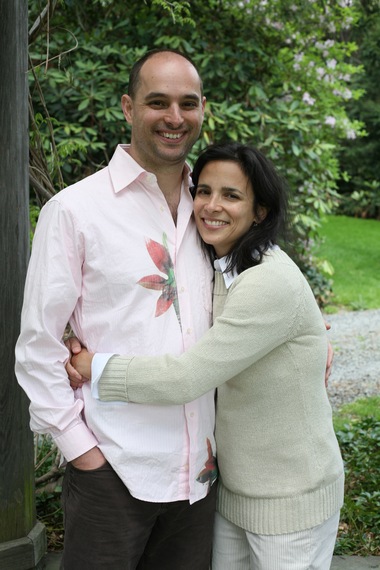As I'm writing this, after reading a New York Times article about how human error and risky behavior cause 93 percent of car crashes in the U.S., I'm angry. Yesterday, looking at my brother's Facebook page, I was in denial. Two weeks ago, slogging through unseasonably cold weather and bracing myself for the second anniversary of the death of my only sibling, I was depressed. I have wondered: Shouldn't my experience match up with a set of "stages of grief"? Am I grieving in the wrong way?
No, I'm not getting grief wrong -- and if it were possible to ask Elisabeth Kübler-Ross, I believe she would agree with me.
In 1969, Kübler-Ross' On Death and Dying first advanced the idea of the five "stages" -- denial, anger, bargaining, depression, and acceptance -- to illustrate her observation of how terminally ill people cope with the news of impending death. She wrote that the stages may overlap and occur in different orders, and she noted that some may be skipped altogether. However, her message has been mangled over time, morphing in the process of being passed from person to person of an enormous game of Telephone. The world latched onto the five stages and idealized them into a lockstep progression, holding it up as a "normal" grieving process that the bereaved should follow if they want to heal successfully.
This idea, as Megan Devine says so beautifully in this post, is a lie. And it does not reflect Kübler-Ross' intent.
"There is no set pattern, not for everyone and not even within each person," she says. "There are no stages capable of containing all the experiences of love and pain. There are no stages of grief."
All it takes is five minutes in the "New Non-fiction" area of a bookstore to see how modern humans crave a smartly packaged answer, a simple step-by-step plan that will enable us to sail toward success, systematically checking items off the list as we go. We create catchy acronyms, then try to shoehorn complicated, messy life experiences into the acronym letters. We look for clear signage as we hunt for the "best" path -- and if we find a path that works for us, we often think it should be universally effective.
However, with grief, "simple" and "best" and "universal" do not apply. Every experience of loss is unique, comprised of a once-in-a-lifetime mix of people, relationships, circumstances, progression, and time frame. Kübler-Ross herself emphasized that people experience grief uniquely. No one acronym, path, or set of stages will work for everyone - and some may not work for anyone.
In the two years since my brother was killed by a drunk driver, mtimy reactions have been completely unpredictable. Day after day I have wondered when I was going to follow some identified pattern or clear path. To date, this has never happened. Recently, thinking about how impossible it is to know how I'm going to feel in a given moment or how my emotions will progress, I stalled in the middle of writing at my computer. I started clicking on my browser's many open tabs randomly, following my impulses as I jumped from world to world... and all at once I realized something. I'm not following a progression of stages. I'm navigating a grief browser.
My grief is like a browser with multiple tabs open and staying open. Tabs marked Anger, Denial, Depression, Acceptance, and many more -- each destination possible and available at any time.
I move from one tab to the other instinctively, in no particular order, staying for no predetermined period of time, guided by needs I cannot often anticipate. I might be angry for days, then feel acceptance for a day or an hour, then plunge into denial for a while. I find myself clicking on the depression tab, then on the "grateful to be alive" tab. I can't always explain why I end up in one state of mind or another, but I know wherever I am is where I need to be in that moment.
The grief browser frees me to express myself however I need. Its many open tabs remind me of other possibilities waiting for when I am ready. Knowing this comforts me, especially when I sink so deep into an emotion that it seems impossible to ever feel any other way.
Sometimes I have an impulse to close the tabs I don't want to face. But if I resist the impulse and accept all of them without judgment, a new tab appears. It's labeled "peace." So I leave everything open -- good, bad, and ugly -- because that seems to make peace possible, and I need peace to be possible.
